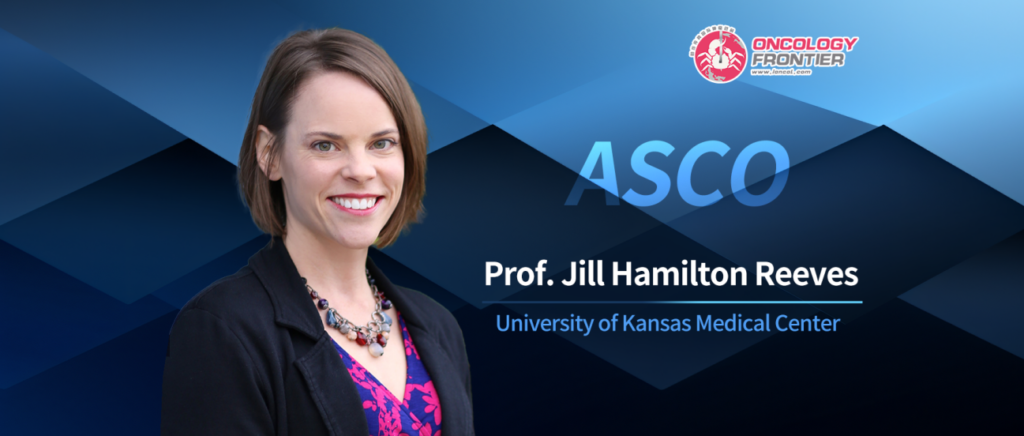
Editor's Note: The 2024 American Society of Clinical Oncology (ASCO) Annual Meeting was held from May 31 to June 4 in Chicago, on the shores of Lake Michigan. Professor Jill Hamilton Reeves from the University of Kansas Medical Center shared the results of the SWOG S1600 study at the conference, exploring the impact of immunonutrition on the outcomes of radical cystectomy (RC). Oncology Frontier interviewed Professor Jill Hamilton Reeves on-site to discuss the study results.Dr. Jill Hamilton Reeves’ research underscores the critical role of nutrition in cancer care. Her findings suggest that enhanced nutritional support may improve cancer patient survival rates, paving the way for further exploration of how specific nutrients can aid in recovery and long-term health.
Nutritional intervention is a vital component of comprehensive cancer care. Dr. Jill Hamilton Reeves highlights the potential benefits of incorporating targeted nutrients into patients’ diets, not only to manage complications but also to improve overall survival rates and quality of life. Continued research in this field holds promise for developing effective strategies to support cancer patients through treatment and recovery.
1. Oncology Frontier: Based on clinical practice, what do you think bladder cancer patients need to pay attention to in treatment after radical resection?
Professor Jill Hamilton Reeves: Certainly. As a nutritionist, I emphasize the importance of maintaining a healthy diet, especially during cancer treatments. It’s crucial for patients to get enough calories and protein, and to have support in preparing meals, particularly when they might not feel well. This approach informed our study, where we looked into nutritional interventions to see if they could reduce complication rates.
2. Oncology Frontier: You presented the results of the SWOG S1600 study at ASCO. How do different nutritional supplements affect disease progression and complications in patients with bladder cancer who have undergone radical cystectomy?
Professor Jill Hamilton Reeves: In our trial, we compared two nutritional drinks. Both the intervention and control groups received the same base formula, but the intervention drink had additional nutrients, including fish oil, arginine, and nucleotides. We aimed to see if this enriched formula could reduce complication rates. While the complication rates were similar between both groups, our data suggested that patients in the intervention group lived longer. This finding is intriguing, and we plan to investigate further to understand what might be contributing to the improved survival rates.
3. Oncology Frontier: What areas of research will you explore in the future?
Professor Jill Hamilton Reeves: We have much more to explore. The primary results are just the beginning. We are particularly interested in complications such as infection rates, where we believe the added nutrients might make a significant difference. We also think these nutrients help patients retain muscle mass better, and we have data on that which we plan to analyze. Additionally, we have extensive metabolism and immune data that we will examine to understand how these nutrients impact patients’ recovery and overall survival after surgery.


